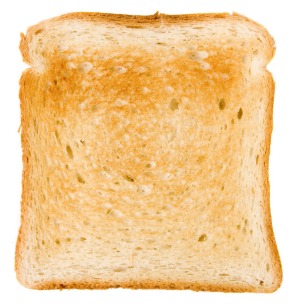London: Beware the crispy roast potato and the crunchy slice of toast. Both contain worryingly high levels of a cancer-causing chemical.
A new study by Britain’s Food Standards Agency (FSA), the Government’s food safety watchdog, measured the amount of acrylamide – a cancer-causing toxin – in roast potatoes, chips and toast cooked in the home.
The FSA’s chief scientific adviser said the new research showed the need for roast potatoes and chips to be cooked to only “a light golden colour” and that bread should be toasted to “the lightest colour acceptable”.

Researchers with the FSA discovered that the crispier the roast potato or chip, the higher the levels of acrylamide they contained. The same went for toast.
The chemical, which is a proven carcinogen, is formed from a reaction between amino acids and the sugars and water found in potatoes and bread when they are subjected to temperatures above 120C.
The official research, published last week, showed huge variations in levels of acrylamide depending on how long the potatoes or bread were cooked for.
In a batch of chips cooked for the longest, scientists recorded 1052 microgrammes of acrylamide per kilogramme – 50 times higher than in the batch with the lowest levels of the chemical.
In roast potatoes, the FSA recorded 490 microgrammes of acrylamide per kg in the most cooked batch – 80 times higher than the levels contained in the palest batch of roast potatoes cooked.
The same was true of toast. The palest, least cooked toast contained just nine microgrammes per kg while the crispiest toast contained 167 microgrammes – almost 19 times more.
Prof Guy Poppy, the FSA’s Chief Scientific Adviser, said in a report accompanying the study: “The risk assessment indicates that at the levels we are exposed to from food, acrylamide could be increasing the risk of cancer.”
Prof Poppy added: “We do not advise people to stop eating particular foods but when making chips at home, they are cooked to a light golden colour.”
Telegraph, UK
